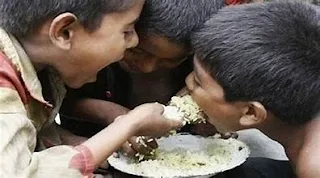اصل روز الست سے تجھ کو ڈھونڈنے نکلا ہوں اتنی عمر گزاری تیری چاہت میں صدیوں پہلے میں نے رب کے سامنے تیرا نام لیا اتنےزمانوں بعد بھی مجھ کو تیرے نام نے تھام لیا جب تک اسیر قفس عنصری ہوں اس قید سے آزادی تک میں تجھے تلاش کرتا رہا تیری ہستی کے اک اک پہلو کا دم بھرتا رہا کیونکہ ہر نقل اصل کی طرف گامزن ہے تو میری اصل ہے یا رحمت عالم حدیثِ جابر بن عبداللہؓ (حدیثِ نور) اور میری نظم کا باطنی پس منظر اسلامی روایت میں ایک مشہور روایت “حدیثِ نور” کے نام سے معروف ہے جسے حضرت جابر بن عبداللہ سے منسوب کیا جاتا ہے۔ اس روایت کے مطابق جب جابرؓ نے حضور اکرم ﷺ سے سوال کیا کہ اللہ تعالیٰ نے سب سے پہلے کس چیز کو پیدا فرمایا؟ تو جواب میں نورِ محمدی ﷺ کا ذکر آیا۔ اگرچہ اس روایت کی اسنادی حیثیت پر محدثین کے درمیان اختلاف پایا جاتا ہے، لیکن صوفیاء اور اہلِ محبت نے اسے ایک روحانی حقیقت اور عرفانی استعارے کے طور پر قبول کیا ہے۔ اس تصور کے مطابق کائنات کی تخلیق کا آغاز نورِ محمدی ﷺ سے ہوا اور تمام موجودات اسی نور کی تجلیات ہیں۔ یہی وہ فکری پس منظر ہے جو میری نظم کے باطن میں موجزن تھا۔ ...
how we can reduce poverty from our society ?
Reducing poverty is a complex and multifaceted challenge that requires a combination of policies, programs, and community engagement. Here are some strategies that can contribute to poverty reduction:Education:
Promote Education Access: Ensure that all individuals, regardless of socio-economic status, have access to quality education. This includes both primary and secondary education, as well as vocational training. Skills Development: Invest in programs that equip people with the skills needed for employment in growing industries. This can enhance their employability and income-earning potential.Employment Opportunities:
Job Creation:
Implement policies that foster economic growth and create job opportunities. This might involve supporting small and medium enterprises, promoting entrepreneurship, and attracting investment. Fair Wage Policies: Advocate for fair wages and workers' rights to ensure that employment provides a pathway out of poverty.Social Protection:
Safety Nets: Establish social safety nets such as unemployment benefits, food assistance, and healthcare to protect vulnerable populations during times of economic hardship. Conditional Cash Transfers: Implement targeted cash transfer programs that provide financial assistance to families on the condition that they meet certain criteria, such as sending children to school or participating in health programs.Healthcare:
Accessible Healthcare: Ensure affordable and accessible healthcare to prevent medical expenses from pushing families into poverty. Disease Prevention: Implement public health initiatives to prevent the spread of diseases and reduce healthcare costs.Infrastructure Development:
Basic Infrastructure: Improve infrastructure such as roads, water supply, and electricity, which can contribute to economic development and improve living standards. Rural Development: Address disparities between urban and rural areas, providing equal opportunities for development and reducing migration driven by lack of opportunities.Women's Empowerment:
Gender Equality: Promote gender equality by ensuring that women have equal access to education, employment, and resources. Empowered women often contribute significantly to poverty reduction.Community Engagement:
Community Development Programs: Involve local communities in the design and implementation of poverty reduction programs to ensure that solutions are tailored to the specific needs of the people. NGO and Volunteer Initiatives: Support and collaborate with non-governmental organizations (NGOs) and volunteers working on poverty alleviation projects.Policy Advocacy:
Advocate for Pro-Poor Policies: Encourage policies that address the root causes of poverty, promote social justice, and reduce income inequality.Financial Inclusion:
Rekhta - Urdu Poetry
Access to Banking Services: Promote financial inclusion by providing access to banking services, microfinance, and other financial tools that enable individuals to save and invest in their futures.





Very interesting and fact based essay
ReplyDeletepoverty is big issue no doubt
ReplyDelete